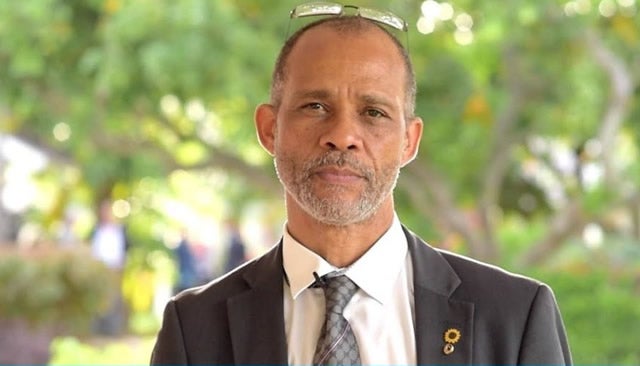Commissioner for Health, Prof. Akin Abayomi described the past six years he has been in the saddle as a period of ‘radical transformation in the architecture, access, and resilience of Lagos’ healthcare system’, emphasising that the progress achieved was made possible through the collaborative efforts of government officials, healthcare professionals, and development partners.
Lagos is home to approximately 30 million people. With a rapid annual population growth rate of 6 to 8%, this places significant demand on the health system, requiring smart, scalable, and resilient solutions.
Abayomi highlighted the dual structure of the state’s healthcare ecosystem, comprising 360 public health facilities and over 3,500 private health establishments, while stressing the regulatory challenges posed by the largely unregulated private sector. ‘We must bridge the public-private divide to ensure quality and equity’, he added.
Referencing the Lagos State Development Plan (2022–2052), the commissioner explained that the ongoing health sector reforms are strategically aligned to achieve Universal Health Coverage and position Lagos as a sub-Saharan hub for medical tourism. ‘We are not just treating patients; we are building a global healthcare brand’, he stated.
Despite having the lowest maternal mortality rate in Nigeria, which is 430 per 100,000 live births, Abayomi declared that it is unacceptable. ‘We’ve declared zero tolerance for preventable maternal deaths, and our goal is to reduce this figure to 37 per 100,000 within the next two to three decades’, he affirmed.
Currently, only 5% of Lagos residents are enrolled in health insurance, but the state is committed to Universal Health Coverage (UHC), such as Ilera Eko, which is a “Health Coverage For All” initiative that captures the vision of a truly inclusive health system from Digital innovation to tailor made plans. Other innovations pioneered by the state Health Management Agency are Virtual Booth, Ilera Eko App and Telemedicine platforms that have enhanced access to care. Ilera N Tiwa is another initiative which is a cooperative for enabling flexible premium payments for informal sector workers.
Over one million enrollees across the 57 Local Government Areas and Local Council Development Council’s are benefiting from a wide range of tailored plans for various population groups, including the Standard Jaara, Seniors and School health plans, which signpost that, in Lagos, health insurance is not a luxury but a right and investment. That is why the heath sector in Lagos has witnessed increased in budgetary allocation from the current 8% towards the 15% target supported by dynamic re-allocations throughout the fiscal year.
To counter the nationwide brain drain, Abayomi emphasised Lagos’ strategic investment in workforce development. With only 7,000 doctors serving 30 million residents, which is far below the WHO benchmark of one doctor per 600 patients, he noted a shortfall of 33,000 doctors. ‘That’s why we are prioritising training’, he explained.
The Commissioner said that a major component of this strategy is the University of Medicine and Health Sciences, which will train 2,500 students annually, 40% of whom will become doctors. ‘Legislation is almost complete, and construction is underway at key locations, including the Cardiorenal Centre in Gbagada and the Isolation Centre at the Infectious Disease Hospital, Yaba’, he revealed.
Regarding infrastructure, Abayomi detailed the government’s investments in both Greenfield and Brownfield projects to deliver facilities that are fit-for-purpose, climate-resilient, and energy-efficient. He said: ‘We are building for the future with sustainable hospitals, smart centres, and adaptable facilities.
‘Leading this transformation is the Lagos State Smart Health Information Platform (SHIP), a comprehensive digital ecosystem designed to unify patient records, referrals, emergency services, and inter-facility communication. SHIP will eliminate the chaos of bed-hunting ambulances and end reliance on paper records.
The Commissioner disclosed that the SHIP is now at stage seven of its rollout with the commencement of infrastructure upgrades and sensitisation programmes. ‘It will eventually incorporate private health facilities, creating a statewide patient information network. This is more than technology, it’s transformation’, he emphasised.
Although malaria remains a public health threat, Lagos is on track to achieving malaria pre- elimination status with a prevalence rate currently at 1.3% as the state transitioned from 15% malaria prevalence in 2010 to just 3% in 2023 with the latest data in 2025, revealing a 1.3 per cent prevalence which is encouraging but a lot of work needs to be done to completely eradicate malaria from the state.
Abayomi reiterated the government’s “Prevent, Test, Treat, Track” policy, promoting preventive strategies such as insecticide-treated nets and environmental sanitation to eliminate mosquito breeding grounds. ‘Not every fever is malaria. Misdiagnosis costs lives. If you feel unwell, get tested at a health facility’, he warned.
He also provided updates on disease control initiatives, highlighting progress in HIV reduction, viral hepatitis strategies, expanded cancer screenings, and free public screenings for hypertension and diabetes. Tuberculosis remains a key concern, with over 19,000 cases, including 288 drug-resistant infections. ‘We treat TB as a biosecurity issue, and the First Lady is championing advocacy efforts’, he said.
Abayomi commended key agencies, including the Health Facilities Monitoring and Accreditation Agency, the state Blood Transfusion Service, the state Traditional Medicine Board, and the state AIDS Control Agency for their roles in the sector’s achievements. ‘Regulation has improved, traditional medicine is being upgraded through training, and we’re ensuring every pint of blood is safe’, he noted.
Abayomi asserted that Lagos is not just building hospitals, it is creating a smarter, safer, and more equitable healthcare system. ‘This is a healthcare revolution driven by data, powered by people, and inspired by purpose. We’re not just preparing for the future; we’re creating it’, he further said.
In Lagos, health is indeed wealth.



